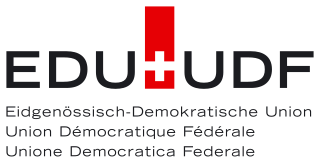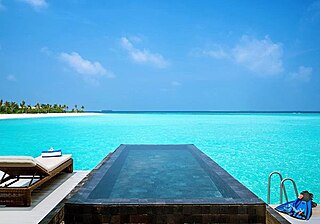
A hotel is an establishment that provides paid lodging on a short-term basis. Facilities provided inside a hotel room may range from a modest-quality mattress in a small room to large suites with bigger, higher-quality beds, a dresser, a refrigerator and other kitchen facilities, upholstered chairs, a flat screen television, and en-suite bathrooms. Small, lower-priced hotels may offer only the most basic guest services and facilities. Larger, higher-priced hotels may provide additional guest facilities such as a swimming pool, business centre, childcare, conference and event facilities, tennis or basketball courts, gymnasium, restaurants, day spa, and social function services. Hotel rooms are usually numbered to allow guests to identify their room. Some boutique, high-end hotels have custom decorated rooms. Some hotels offer meals as part of a room and board arrangement. In the United Kingdom, a hotel is required by law to serve food and drinks to all guests within certain stated hours. In Japan, capsule hotels provide a tiny room suitable only for sleeping and shared bathroom facilities.

Switzerland, officially the Swiss Confederation, is a landlocked country situated at the confluence of Western, Central, and Southern Europe. It is a federal republic composed of 26 cantons, with federal authorities based in Bern. Switzerland is bordered by Italy to the south, France to the west, Germany to the north, and Austria and Liechtenstein to the east. It is geographically divided among the Swiss Plateau, the Alps, and the Jura, spanning a total area of 41,285 km2 (15,940 sq mi), and land area of 39,997 km2 (15,443 sq mi). Although the Alps occupy the greater part of the territory, the Swiss population of approximately 8.5 million is concentrated mostly on the plateau, where the largest cities and economic centres are located, among them Zürich, Geneva, and Basel. These cities are home to several offices of international organisations such as the headquarters of FIFA, the UN's second-largest Office, and the main building of the Bank for International Settlements. The main international airports of Switzerland are also located in these cities.
The foreign relations of Switzerland are the primary responsibility of the Federal Department of Foreign Affairs (FDFA). Some international relations of Switzerland are handled by other departments of the federal administration of Switzerland.

A bunker is a defensive military fortification designed to protect people and valued materials from falling bombs or other attacks. Bunkers are mostly underground, in contrast to blockhouses which are mostly above ground. They were used extensively in World War I, World War II, and the Cold War for weapons facilities, command and control centers, and storage facilities. Bunkers can also be used as protection from tornadoes.

Banking in Switzerland dates to the early eighteenth century through Switzerland's merchant trade and has, over the centuries, grown into a complex, regulated, and international industry. Banking is seen as emblematic of Switzerland, along with the Swiss Alps, Swiss chocolate, watchmaking and mountaineering. Switzerland has a long, kindred history of banking secrecy and client confidentiality reaching back to the early 1700s. Starting as a way to protect wealthy European banking interests, Swiss banking secrecy was codified in 1934 with the passage of the landmark federal law, the Federal Act on Banks and Savings Banks. These laws, which were used to protect assets of persons being persecuted by Nazi authorities, have also been used by people and institutions seeking to illegally evade taxes, hide assets, or generally commit financial crime.

Teufen is a municipality in the canton of Appenzell Ausserrhoden in Switzerland.

Dry cask storage is a method of storing high-level radioactive waste, such as spent nuclear fuel that has already been cooled in the spent fuel pool for at least one year and often as much as ten years. Casks are typically steel cylinders that are either welded or bolted closed. The fuel rods inside are surrounded by inert gas. Ideally, the steel cylinder provides leak-tight containment of the spent fuel. Each cylinder is surrounded by additional steel, concrete, or other material to provide radiation shielding to workers and members of the public.

The Greenbrier is a luxury resort located in the Allegheny Mountains near White Sulphur Springs in Greenbrier County, West Virginia, in the United States.

Piaget SA is a Swiss luxury watchmaker and jeweller. Founded in 1874 by Georges Piaget in the village of La Côte-aux-Fées, Piaget is currently a subsidiary of the Swiss Richemont group.

The Ulster University Magee campus is one of the four campuses of Ulster University. It is located in Derry, County Londonderry, Northern Ireland and opened in 1865 as a Presbyterian Christian arts and theological college. Since 1953, it has had no religious affiliation and provides a broad range of undergraduate and postgraduate academic degree programmes in disciplines ranging from business, law, social work, creative arts & technologies, cinematic arts, design, computer science and computer games to psychology and nursing.

The Federal Democratic Union of Switzerland is a national-conservative political party in Switzerland. Its ideology is politically conservative, Protestant fundamentalist, and right-wing populist. It is similar to the Christian right in the United States, and its top goals were to promote "biblical values" and oppose other cultures and values.

Mövenpick Hotels & Resorts is a Swiss hotel management company headquartered in Baar, Switzerland. It is fully owned by AccorHotels since the September 2018 acquisition from former shareholders Mövenpick Holding (66.7%) and the Saudi-based Kingdom Group (33.3%). It operates over 80 properties, including hotels, resorts and Nile cruisers, with another 30 resorts planned or under construction across the Middle East and Asia.
The Legal Status of Cocaine differs from legal elements in some countries to outright illegal status in others. While every single country has banned the sale of cocaine for recreational use, some have legalized it for possession, personal use, transportation, and cultivation, while some have decriminalized it for certain uses.

Hong Kong SkyCity is a large business and entertainment complex adjacent to Hong Kong International Airport, and is built on land owned by the Airport Authority Hong Kong. It currently includes the AsiaWorld–Expo, Terminal 2 (SkyPlaza) and SkyPier.

Nuclear power in Switzerland is generated by three nuclear power plants, with a total of four operational reactors (see list below). In 2013, they produced 24.8 terawatt-hours (TWh) of electricity, down 5.8% from 2007, when 26.4 TWh were produced. Nuclear power accounted for 36.4% of the nation's gross electricity generation of 68.3 TWh, while 57.9% was produced by hydroelectric plants and 5.7% came from conventional thermal power stations and non-hydro renewable energy sources.

Iran-Switzerland relations are foreign relations between the Islamic Republic of Iran and the Swiss Confederation.

The Hotel Grand Chancellor Hobart is a twelve-storey hotel located on the waterfront of Hobart, Tasmania, Australia The hotel opened in 1987 as the Sheraton Hobart Hotel and has since been taken over by the Grand Hotels International group in 1993. The Grand Chancellor is home to the Restaurant Tasman, the Atrium Bar, Hobart Art Gallery and Zenica Hairdressing. The hotel has an indoor heated pool, a gym and a sauna on site for guest usage.

Philippe Rahm Dipl. EPFL - Ecole Polytechnique Fédérale de Lausanne - Switzerland 1993 is a principal architect in the office of Philippe Rahm architectes, based in Paris, France. His work, which extends the field of architecture from the physiological scale of the body to the climatic scale of the city has received an international audience in the context of sustainability.

The international reaction to the 2011 Fukushima Daiichi nuclear disaster has been diverse and widespread. Many inter-governmental agencies responded to the Japanese Fukushima Daiichi nuclear disaster, often on an ad hoc basis. Responders included International Atomic Energy Agency, World Meteorological Organization and the Preparatory Commission for the Comprehensive Nuclear Test Ban Treaty Organization, which has radiation detection equipment deployed around the world.

















